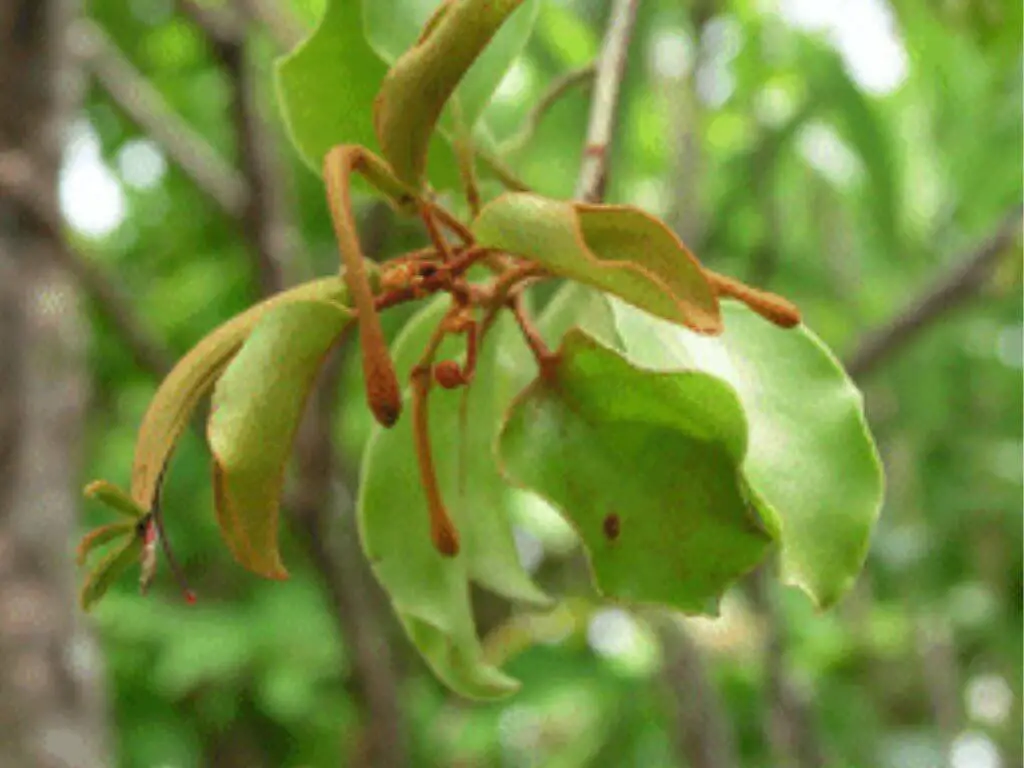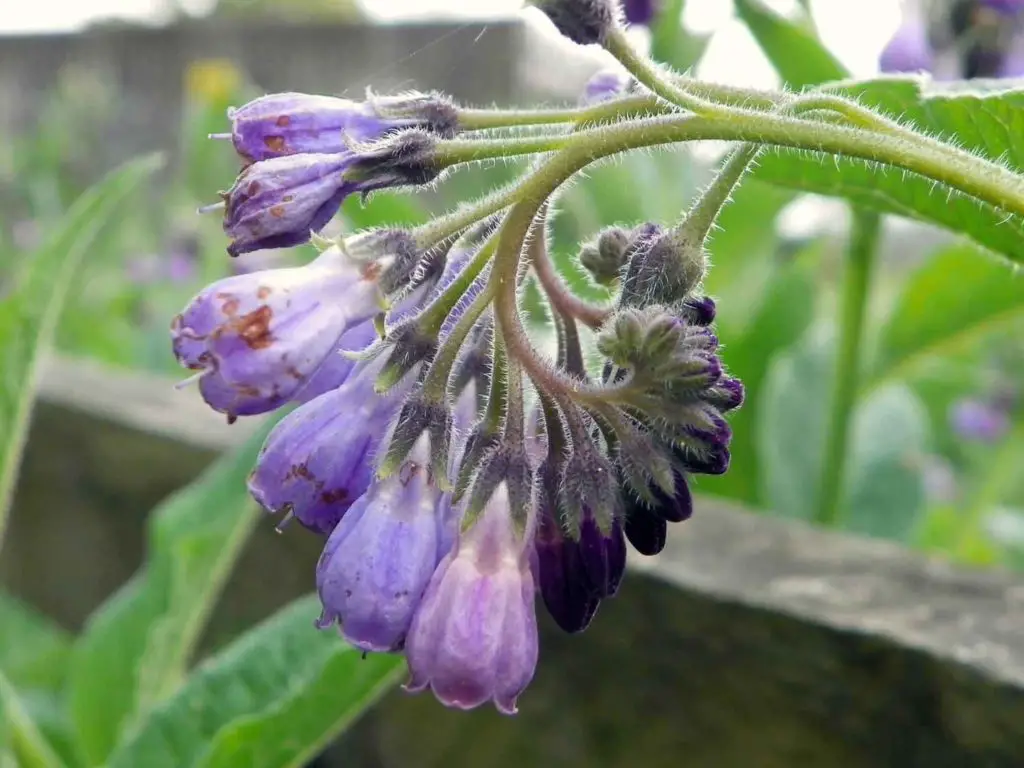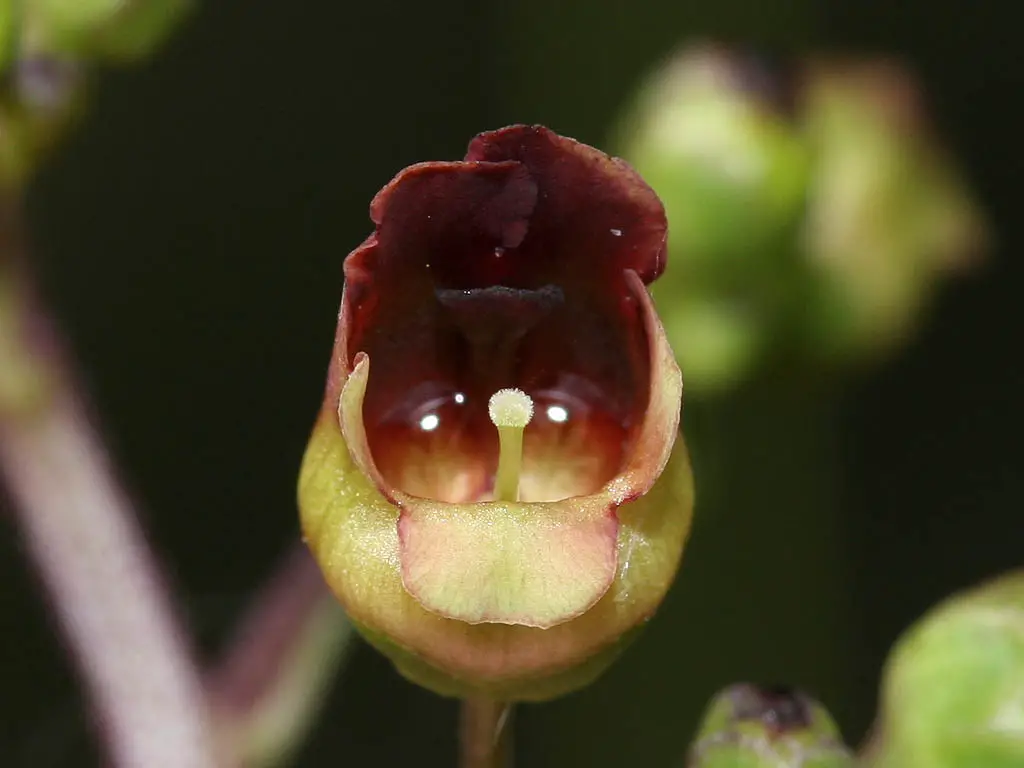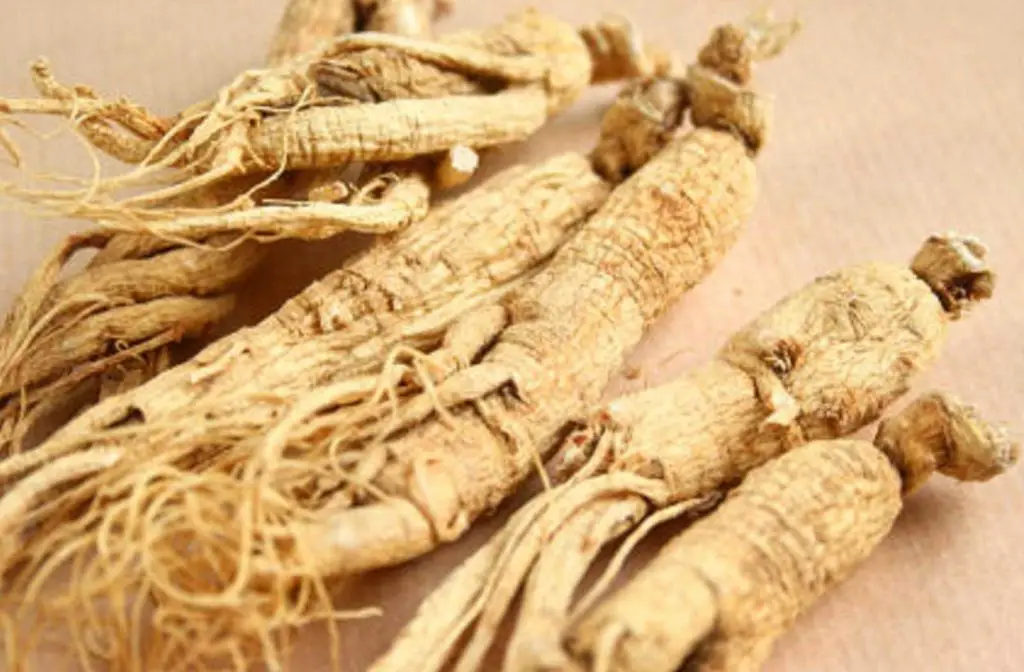China is one of the most historically prosperous countries in the world. With countless innovations stemming from this East Asian country, it is no surprise that China has a vast array of unique and valuable folkloric medicines.
In the early times, Chinese people discovered that the mistletoe growing on mulberry trees possessed various medicinal properties. This type of mistletoe, known as the mulberry mistletoe, has been used in traditional Chinese medicine for centuries.
The beneficial properties of this plant are closely documented in Chinese medical texts, such as the “Compendium of Materia Medica” by Li Shizhen. According to these ancient texts, mulberry mistletoe has been used to dispel wind dampness, fortify bones and muscles, and prevent miscarriage.
What Is Herba Taxilli?
Herba Taxilli, commonly known as mulberry mistletoe (桑寄生) or Taxillus chinensis, is a hemiparasitic plant native to various regions of Asia, including Cambodia, China, Japan, Korea, the Philippines, and Taiwan. This plant primarily grows on the branches and trunks of mulberry trees, although it can also be found on other large tree species. Mulberry mistletoe has been valued in traditional Chinese medicine for its potential healing properties and is considered an essential herb with various therapeutic applications.
The name “Sang Ji Sheng” in Chinese translates to “mulberry parasite” due to its association with mulberry trees. The plant consists of various parts, such as stems, leaves, and berries, commonly used in herbal remedies. The primary active compounds in mulberry mistletoe include flavonoids, lignans, and polysaccharides, contributing to its numerous health benefits.
Mulberry Mistletoe Benefits
Mulberry mistletoe is one of the many vital herbs in oriental medicine and has been used to treat various health conditions for centuries. Some of the most notable benefits of mulberry mistletoe include the following.
Improve Liver and Kidney Health
One of the mulberry mistletoe’s most prominent and widely recognized benefits is its positive impact on liver and kidney health. Traditional Chinese medicine suggests this herb can nourish and strengthen these vital organs, promoting optimal function.
The rich amounts of flavonoids and amino acids in mulberry mistletoe are believed to have hepatoprotective effects, helping to shield the liver from damage and improve its overall health. Additionally, the herb’s diuretic properties are thought to support kidney function and assist in removing waste products from the body.
Build Stronger Bones
Herba Taxilli is also celebrated for its potential to aid bone health. It is believed to benefit individuals suffering from osteoporosis and those looking to maintain strong and healthy bones. The herb is thought to promote calcium absorption, which is crucial for bone density and overall skeletal strength. In a particular study, the researchers observed a promising growth in bone mineral density in the femur and tibia of rats with induced osteoporosis.
Arthritis Treatment
Traditional Chinese medicine has often employed mulberry mistletoe to address various forms of arthritis. Its anti-inflammatory properties can help reduce joint pain, swelling, and stiffness associated with rheumatoid arthritis. By modulating the body’s immune response, mulberry mistletoe may offer relief to those suffering from arthritic discomfort.
Help With Fetal Restlessness
In traditional Chinese medicine, mulberry mistletoe is also used to address fetal restlessness during pregnancy. It is believed to have a calming effect on the fetus, potentially reducing excessive movements and promoting a more peaceful pregnancy experience for expectant mothers. A particular research provides insight into the metabolites present in this plant, which are thought to help with fetal restlessness.
Help With Epilepsy
Mulberry mistletoe and many types of mistletoe have been researched for their potential in managing epilepsy, a neurological disorder characterized by recurrent seizures. Some studies suggest that the herb may help reduce the frequency and severity of seizures in epilepsy patients. However, it is essential to consult with a healthcare professional before using it as a treatment for epilepsy, as individual responses can vary.
Herba Taxilli Side Effects
While mulberry mistletoe offers a range of potential benefits, it’s essential to be aware of possible side effects that may arise, especially when consumed in excessive quantities or without proper guidance. Here are some side effects to watch out for.
Stomach Upset
Excessive consumption of this herb, especially in mulberry mistletoe tea, may lead to stomach upset, including symptoms such as nausea, diarrhea, and abdominal discomfort. It’s crucial to follow recommended dosages and consult a healthcare professional if you experience persistent digestive issues.
Headache and Dizziness
In rare cases, the use of mulberry mistletoe may result in headaches and dizziness. If you are prone to migraines or have a history of dizziness, it is advisable to start with a low dosage and monitor your body’s response carefully.
Allergic Reaction
As with any herbal remedy, an allergic reaction to mulberry mistletoe is possible. You might not be allergic to the plant, but something in its component could trigger the response. Common allergic symptoms include skin rashes, itching, and hives. If you experience any signs of an allergic reaction, discontinue use and seek medical attention immediately.
Sang Ji Sheng and Pregnancy: Is It Safe?
Pregnancy is a wondrous period in a woman’s life, and the safety of any herb during this time is paramount. When it comes to mulberry mistletoe, there are varying opinions on its safety during pregnancy. While some traditional Chinese medicine practitioners have used this herb to address fetal restlessness, it is crucial to approach this cautiously.
Pregnant individuals should consult with their healthcare provider before using Herba Taxilli. The potential benefits of the herb must be weighed against any potential risks, as well as the individual’s specific health and pregnancy conditions. Safety should always be the top priority during pregnancy, and professional guidance is indispensable.
In Conclusion
Mulberry mistletoe is indeed an intriguing herb with a rich history in traditional Chinese medicine. Its potential benefits range from supporting liver and kidney health to aiding bone strength, addressing arthritis, and even assisting with epilepsy and fetal restlessness. However, it’s essential to use this herb with care and adhere to recommended dosages, as excessive use can lead to side effects like stomach upset, headache, and even convulsions in rare cases.
If you are considering incorporating this herb into your wellness regimen, it is advisable to consult with a qualified healthcare professional. This ensures you receive personalized guidance based on your specific health condition and needs. Keep in mind that nutraceuticals are best viewed as a complementary therapy that can be part of a holistic approach to well-being.
Subscribe to our newsletter!
Sang Ji Sheng FAQs
What Is the Mistletoe Tea Used For?
Mistletoe tea, typically prepared from Herba Taxilli or mulberry mistletoe, is often used in traditional Chinese medicine for potential health benefits. It is commonly consumed to support liver and kidney health, promote bone strength, alleviate arthritis symptoms, and assist with conditions like epilepsy and fetal restlessness. However, consulting with a healthcare provider before using mistletoe tea for specific health concerns is essential.
How Do You Prepare Mulberry Mistletoe as Tea?
To prepare mulberry mistletoe tea, follow these simple steps:
- Boil water and let it cool slightly.
- Place a small handful of dried Herba Taxilli leaves (approximately five to ten grams) in a teapot or cup.
- Pour the hot water over the leaves.
- Allow the tea to steep for five to ten minutes.
- Strain the tea to remove the leaves, and it’s ready to drink.
The tea can be consumed once or twice a day, but following recommended dosages is crucial to avoid potential side effects.
What Is the Benefit of Taxillus Chinensis?
Mulberry mistletoe offers a myriad of health benefits. These include supporting liver and kidney health, promoting bone strength, alleviating arthritis symptoms, assisting with epilepsy management, and addressing fetal restlessness during pregnancy. The herb contains active compounds like flavonoids, lignans, and polysaccharides that contribute to these therapeutic effects. However, it should be used with care and under the guidance of a healthcare professional.
Sources:
- https://community.bulksupplements.com/taxillus-chinensis-mulberrymistletoe/
- https://www.researchgate.net/publication/366141429_Taxillus_chinensis_DC_Danser_a_comprehensive_review_on_botany_traditional_uses_phytochemistry_pharmacology_and_toxicology
- https://www.ncbi.nlm.nih.gov/pmc/articles/PMC8704892/
- https://cmjournal.biomedcentral.com/articles/10.1186/s13020-022-00694-5
- https://www.verywellhealth.com/mistletoe-5081981
- https://www.cancer.gov/about-cancer/treatment/cam/patient/mistletoe-pdq
- https://www.hindawi.com/journals/jchem/2023/7977620/
- https://pubmed.ncbi.nlm.nih.gov/36482376/
- https://www.ncbi.nlm.nih.gov/pmc/articles/PMC9730624/
- https://www.ncbi.nlm.nih.gov/pmc/articles/PMC3942999/
- https://www.scielo.br/j/cta/a/kMYCHb7N8VNNDpS5jp7tDZy/?lang=en&format=pdf
- https://www.ncbi.nlm.nih.gov/pmc/articles/PMC8704892/
- https://www.sciencedirect.com/science/article/abs/pii/S0378874118328010
- https://assets.researchsquare.com/files/rs-80122/v1/69197d67-57f9-45d2-a155-6e6dbc7a6f0a.pdf?c=1631857429





